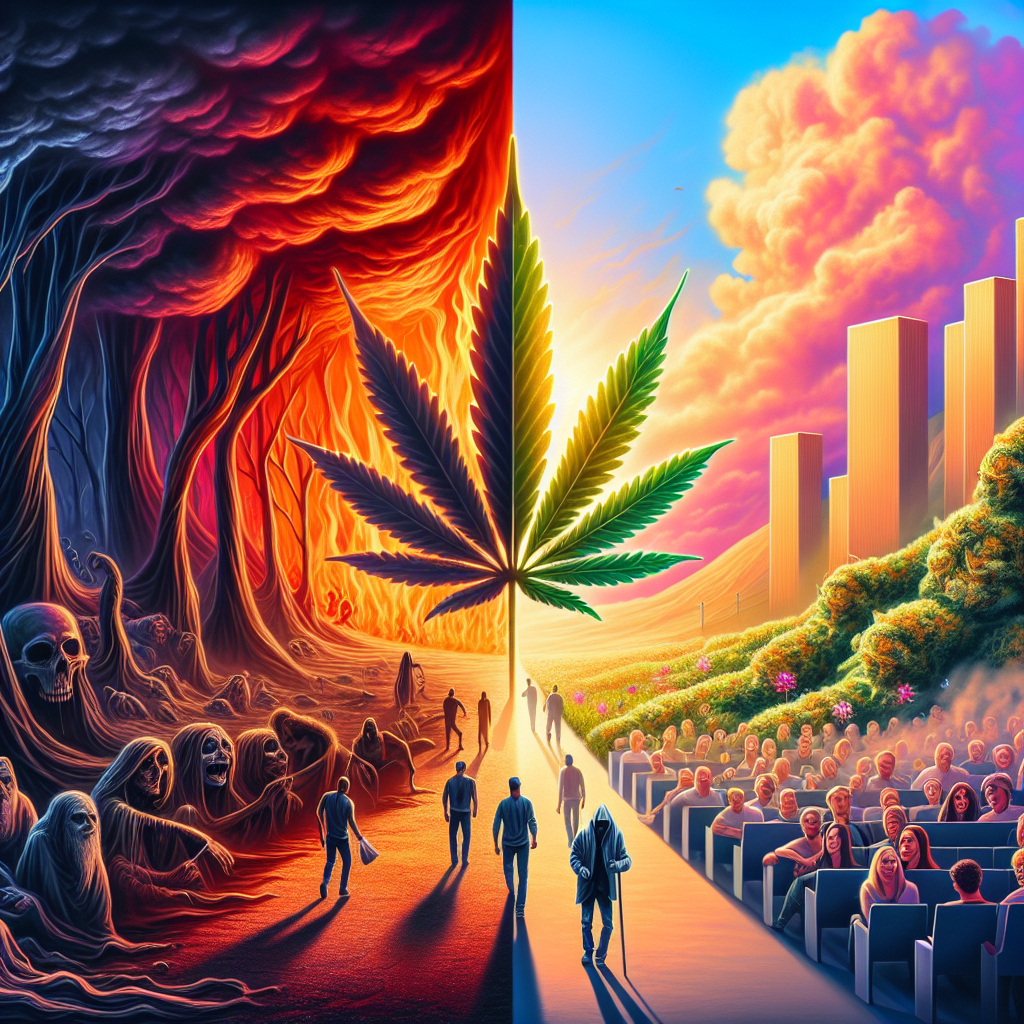The cannabis landscape in the United States has undergone a seismic shift over the past few decades. Once cloaked in stigma and associated with illegality, the perception of cannabis has transformed dramatically, positioning it at the forefront of social and economic discourse. As the country grapples with questions of legality, health, and morality, cannabis has emerged from the margins to become a compelling topic of conversation, legal reform, and social justice. This rise is not just a trend; it reflects deeper societal changes that challenge longstanding beliefs about cannabis use and its implications.
Historically, cannabis has been vilified and criminalized. The "War on Drugs," initiated in the 1970s, characterized marijuana as a dangerous substance that could lead to addiction and crime. These beliefs were perpetuated by sensationalist media and politically charged rhetoric, creating a stigma that lasted for generations. However, recent years have revealed a growing body of research that suggests the medicinal and therapeutic benefits of cannabis, redefining public perception. Studies have indicated that cannabis can help alleviate chronic pain, reduce anxiety, and even manage conditions like epilepsy. As the medical community begins to embrace these findings, there is a notable shift in public attitudes, with many Americans recognizing the potential benefits of cannabis.
The states leading the charge in cannabis legalization are California, Colorado, and more recently, New York and New Jersey. As of now, over half of U.S. states have legalized cannabis for medical use, while many have decriminalized or legalized recreational use. This fierce push for legalization is driven not only by the recognition of the plant’s medical properties but also by the economic potential it holds. The cannabis industry in the U.S. is projected to grow into a multi-billion dollar enterprise. Reports indicate that the legal cannabis market could reach $41.5 billion by 2025, showcasing a robust economic opportunity that states are eager to tap into.
Yet, the transition from illegality to acceptance is fraught with complexity. Despite legalization in many states, marijuana remains classified as a Schedule I substance under federal law, complicating its overall status. This inconsistency leads to a myriad of social issues, primarily concerning those with past marijuana-related convictions. Critics of legalization argue that the economic benefits have not translated into social equity, with marginalized communities often left behind in the new cannabis economy. This situation raises critical questions about equity in cannabis licensing and ownership, as many minority communities bear the brunt of enforcement of past marijuana laws.
In 2023, the call for social justice and reform within the cannabis industry has become increasingly prominent. Advocacy groups are lobbying for measures that aim to rectify the wrongs of past cannabis prohibition. Recent legislative efforts at both state and federal levels have begun to address these concerns. For example, Congress has seen proposals aimed at expunging past cannabis convictions and providing equity in licensing. One notable initiative is the Cannabis Administration and Opportunity Act, which seeks to decriminalize cannabis at the federal level and promote economic opportunities for communities adversely affected by the war on drugs. These advancements indicate a growing recognition of the social implications of cannabis policy.
Moreover, the changing landscape of cannabis has invited discussions around its recreational use and societal implications. Young adults, especially, view cannabis differently than previous generations. A recent Gallup poll indicates that over 70% of Americans support marijuana legalization, and among young adults, the figure is even higher. This generational shift suggests that cannabis is increasingly perceived as a normalized aspect of American life, akin to alcohol. The rise of social consumption lounges and cannabis-infused products, from beverages to edibles, reflects this trend and indicates a broader acceptance of cannabis as part of social experiences.
Yet, the normalization of cannabis raises concerns about health and safety. With the increasing availability of cannabis products, there’s an urgent need for robust regulatory frameworks to ensure consumer safety. Experts warn about the risks associated with unregulated products, addressing issues such as accurate labeling and potency levels. Additionally, there is ongoing research regarding the long-term health effects of cannabis use, particularly among young people. The development of educational campaigns around responsible use, akin to those for alcohol and tobacco, becomes crucial in addressing these challenges.
The cannabis revolution is a microcosm of broader social change in the United States. It illustrates how perceptions can evolve when grounded in research, economic realities, and cultural shifts. As society grapples with the ramifications of legalization, advocates emphasize the need for an inclusive approach that rectifies past injustices and paves the way for sustainable growth in the cannabis sector. The conversation around cannabis is not merely about its legality; it’s about justice, health, and the reimagining of cultural norms.
As the cannabis industry continues to flourish, the challenge lies in navigating the complexities of integration into American society. The combination of economic opportunity, social justice, and public health considerations creates a layered narrative that is still unfolding. Whether cannabis will achieve its potential as a socially acceptable and beneficial component of society remains to be seen. However, one thing is clear: the rise of cannabis illustrates the transformative power of changing perceptions and the importance of addressing underlying social issues as society evolves. As we move forward, we must reflect on how we define progress and how those definitions can shape the fabric of our communities.





